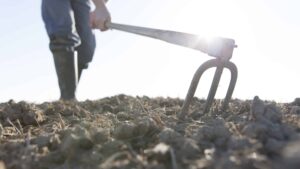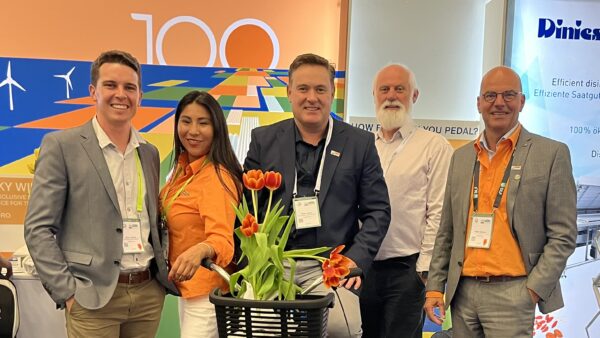As the global population rises it is clear that conventional farming is feeling the strain. A knowledge intensive approach is vital to reduce reliance on artificial inputs.
“We need to go back to how my grandfather farmed, but using modern science,” says Andrew Blenkiron, Estate Director at Euston Estate and speaker at the forthcoming REAP conference.
Blenkiron will be participating in Agri-Tech East’s annual REAP (Realising our Economic & Agricultural Potential) conference on 7 November. Aptly themed, ‘Today’s Knowledge Meets Tomorrow’s Technology’, the event will focus on emerging agri-tech to secure a productive, profitable and sustainable future.
He believes that to ensure long-term soil security, organic material should be put back on the land, rather than removing it with the harvest.
While there is intention to change practices, farmers need to see the economic benefit.
“I believe that over the last 40 to 50 years there has been an overreliance on artificial inputs,” Blenkiron says. “However, the biggest challenge that I face at the moment is working out the economic benefits of spreading 30,000 tonnes of organic material from our anaerobic digester, compared to the cost of artificial applications.
“There may be no economic gain if you look at it on a straight costings basis, but I know that the organic material will have the longer-term benefit on the soil health, but how do I measure that?”
Sustainability metrics will be discussed at REAP and it is put into context by a presentation by ‘no-till’ pioneer María ‘Pilu’ Giraudo.
Giraudo is the tenth winner of the Kleckner Award from the Global Farmer Network and is coordinating policies for sustainable development at the Ministry of Agroindustry for Argentina.
Giraudo comments that when her father first changed his fields over to no-till 40 years ago “many thought he was mad,” but now, many farmers are beginning to see no-till as a route for soil recovery in physical, biological and chemical ways.
No-till is widely adopted in South America and gaining ground in the US where in 2009 around 88 million acres or 35.5 per cent of US cropland planted with eight major crops had no tillage operations*. No-till has not spread in Europe to the same extent, but Giraudo considers that the situation is ripe for change.
“It is amazing. You are learning each day from nature and science how the hands of man can be improving, not destroying,” says Giraudo.
Sustainability requires farmers to be rewarded for more than yield. Retailers such as Marks & Spencer are recognising this and increasingly placing value on nutrition and flavour.
REAP presenter Matt O’Hagan, Senior Agronomist at Marks & Spencer, says the retailer is looking at ways to increase the nutritional value of food to increase the levels of the vitamins and minerals that may be lacking from peoples’ diets.
He comments: “When eaten, the Vitamin D is readily used by the body and we have developed a way of giving mushrooms a ‘suntan’ so they are enriched in Vitamin D.”
Dr Belinda Clarke, Director of Agri-Tech East, says: “The aim of REAP 2017 is to bring together innovative farmers and growers with leading researchers and technologists to improve the best practice of today.
“We are eager to continue the success of last year’s conference which has resulted in a number of collaborations.
“I think we have a great balance of speakers and the new Farmer-Tech Platform in particular will offer insights into field scale agri-tech innovations.”
Agri-Tech East’s REAP 2017 conference will take place at the Wellcome Genome Campus Conference Centre in Hinxton, Cambridge. For further information and registration details, please visit the REAP 2017 website: www.reapconference.co.uk
* “No-Till” Farming is a Growing Practice, J. Horowitz, R. Ebel, Economic Research Service https://www.ers.usda.gov/webdocs/publications/44512/8086_eib70.pdf?v=41055












